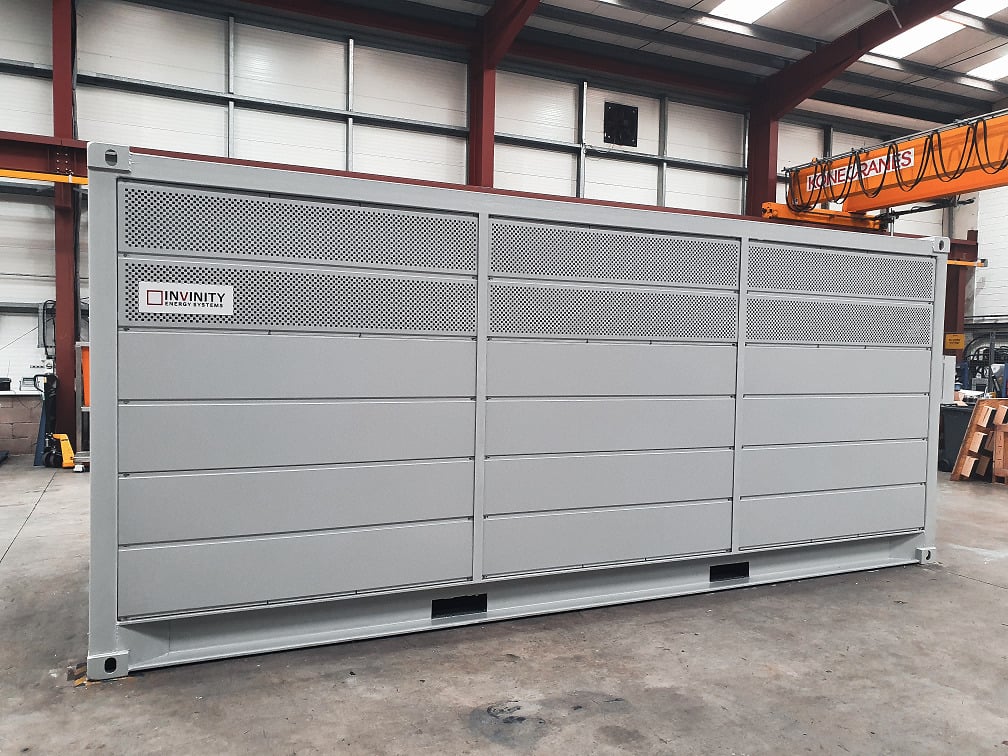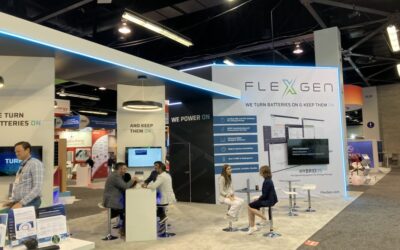
More news in brief from around the world in energy storage, featuring vanadium redox flow batteries (VRFBs), bankruptcy for a thermal storage startup and a new integrated lithium tech.
Saft to trial new integrated battery tech
A new integrated battery storage technology described as a “breakthrough” for the electric vehicle (EV) market will be tried out for stationary storage applications by Saft.
Enjoy 12 months of exclusive analysis
- Regular insight and analysis of the industry’s biggest developments
- In-depth interviews with the industry’s leading figures
- Annual digital subscription to the PV Tech Power journal
- Discounts on Solar Media’s portfolio of events, in-person and virtual
A prototype has been developed through a collaborative research project called Intelligent Battery Integrated System (IBIS), battery and energy storage company Saft, together with automotive manufacturer Stellantis and researchers from the French National Center for Scientific Research (CNRS).
The battery integrates charger and inverter functions into one device. In other words, electric conversion boards performing inverter and charger functions are mounted as close to lithium-ion battery cells as possible.
For EVs, that could mean a reduction in vehicle weight and space taken up by battery equipment, with a control system that enables the alternating current needed to drive electric motors to come directly from the battery.
For stationary energy storage system (ESS) applications, the technology could enable Saft to offer customers turnkey installations with improved availability of batteries, optimisation of stored energy use and a smaller footprint.
One source close to the company commented that the single battery enclosure design could provide DC-coupling to PV systems and also function as the PV inverter, although acknowledging that it could be some years before the technology reaches commercialisation.
A Stellantis corporate video explaining the design and its advantages for electric vehicle (EV) production can be seen below:
Thermal storage startup Azelio files for bankruptcy
Thermal energy storage startup Azelio is filing for bankruptcy at Gothenburg District Court in Sweden.
The company has a proprietary technology that stores energy as 600°C heat in a recycled aluminium alloy phase change material (PCM). The heat is then discharged through a Stirling engine, converting it to electricity.
Azelio was one of the founding members of the global Long Duration Energy Storage Council (LDES Council), and won its first commercial order in 2020 for its TES.POD stackable 13kW units, but after winning several deals between then and the end of 2022, has had a quiet 2023.
The company said on 18 July that it had not been able to secure sufficient financing to remain in business long enough to enter an agreement with an undisclosed strategic partner announced in May.
At that time, Azelio said it had entered a conditional loan agreement worth SK30 million (US$2.84 million) with a major shareholder, but also noted that it was undergoing restructuring, while its CEO departed at the beginning of this month.
Gothenburg District Court approved the bankruptcy application a day after filing, with lawyer Lars Wiking at Advokatfirma DLA Piper Sweden appointed as bankruptcy trustee.
“Despite a great interest in our technology, we have not been able to secure the company’s financing,” Bo Dankis, chairman of Azelio’s board said, adding that the company had been working hard for a long time to secure the strategic partnership that could have changed its fortunes.
VRFBs for remote Australian microgrids
Australian utility company Horizon Power will pilot the use of a flow battery to provide long-duration energy storage (LDES) on its energy network.
Owned by the government of Western Australia, Horizon Power provides electricity to the state as a retailer as well as procuring and owning generation assets. The company has ordered a vanadium redox flow battery (VRFB) from manufacturer Invinity Energy Systems which while fairly small nonetheless marks the first procurement of the technology by an Australian energy utility. Invinity is also supplying its technology to the country’s first grid-scale VRFB installation, in South Australia.
Horizon Power will try out Invinity’s 78kW/220kWh VS3 model VRFB in the town of Kununurra in the far north of West Australia. It will be used to evaluate the role VRFB tech could play in reducing fossil fuel use in Horizon’s distributed energy networks.
Microgrids are a growing part of Horizon Power’s business, with the supplier owning 34 microgrids already that serve about 100,000 customers and 10,000 businesses in the state. Invinity sold the VRFB to VSUN Energy, a subsidiary of vertically integrated vanadium company Australian Vanadium, which works to promote flow batteries to the market in anticipation of opening its own vanadium extraction, processing and electrolyte production facilities.
“Long-duration energy storage provides backup power during times of peak demand or when the power supply is interrupted, storing high volumes of excess energy when demand is low and the ability to shift energy storage into the night. It can also minimise the need for costly fossil fuel generation and grid infrastructure upgrades,” Horizon Power CEO Stephanie Unwin said.
Unwin added that the VRFB’s resilience to warm temperatures and ability to store and discharge energy over a long period of time meet some of the most critical needs of the company’s networks.






